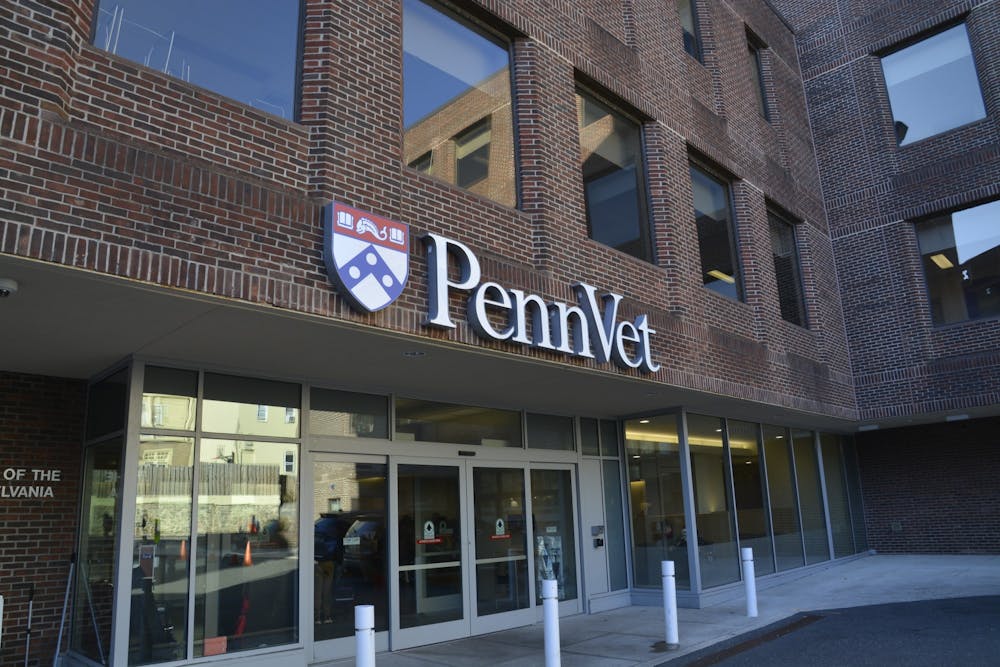
Penn's School of Veterinarian Medicine on Jan. 20, 2020.
Credit: Kylie CooperPenn’s School of Veterinary Medicine has launched the Institute for Infectious and Zoonotic Diseases, which will focus on deepening the understanding of diseases originating from animals that affect humans.
These ailments, known as zoonotic diseases, have been prevalent in recent years. According to Penn Vet, nearly 75% of all new infectious diseases are zoonotic. Ebola, Zika, Avian Flu, and swine flu are all examples of zoonotic diseases, and several scientists claim that SARS-COVID-19 is zoonotic well, as the disease likely originated from bats.
Penn Vet is surrounded by a dense urban environment in the Philadelphia campus, while Penn Vet’s New Bolton Center in Chester County, PA, is located in a highly agricultural environment. Access to these diverse environments allows Penn Vet to study zoonotic diseases in a variety of settings, giving them what Resident Director of Pennsylvania Animal Diagnostic Laboratory System’s New Bolton Center Lisa Murphy calls “the best of both worlds.”
The Institute will focus on research surrounding pathogens, immune response, vaccines, and the role of environmental factors in disease, among other areas of study. According to Penn Vet, the Institute will also aid graduate students in their research of infectious diseases within animals and humans through the new Martin and Pamela Winter Infectious Disease Fellowship.
Earlier this year, the Penn Vet Working Dog Center found that specially trained dogs can sniff out positive COVID-19 samples with a 96% accuracy rate.
According to Penn Vet’s website, the Institute will consist of 30 Penn Vet faculty, over 100 researchers, and other Penn faculty members. Leading the new institution is Christopher A. Hunter, the Mindy Halikman Heyer distinguished professor of Pathobiology. Hunter and his team have been researching parasitology since 1984.
“It’s not a matter of whether there will be another outbreak of one of these [Zoonotic] diseases,” Hunter told Penn Today. “It’s when, where, and at what scale.”
The Daily Pennsylvanian is an independent, student-run newspaper. Please consider making a donation to support the coverage that shapes the University. Your generosity ensures a future of strong journalism at Penn.
Donate







